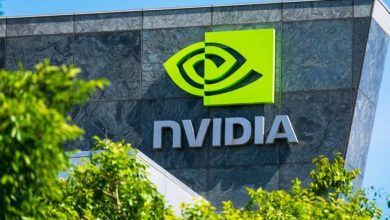Nigerians Lost Over N316bn to Ponzi Schemes, SEC Warns Against Greed and Ignorance
The Securities and Exchange Commission says Nigerians have lost about N316 billion to Ponzi schemes and fake investment platforms.
It blamed greed, ignorance, and poor regulation for the widespread scams.
The Securities and Exchange Commission (SEC) has disclosed that Nigerians have lost an estimated N316 billion to Ponzi schemes and illegal investment platforms over the years. The Commission blamed greed, ignorance, and lack of due diligence for the growing number of victims.
Speaking during a journalists’ training in Abuja, the Head of FinTech and Innovation Department at the Commission, AbdulRasheed Dan-Abu, described Ponzi schemes as fake investment operations that pay old investors with funds collected from new entrants instead of profits from any legitimate business activity.
“These schemes do not create real value. They only recycle money from new investors to pay existing ones. Once there are no new participants, the system collapses and the operators disappear,” he said.
Dan-Abu noted that the rising desire for quick wealth continues to push many Nigerians into fraudulent investment traps. “Everyone wants to get rich immediately. Even educated people still fall for scams despite knowing their risks,” he said.
He cited past examples such as the MMM Nigeria scheme, which promised 30 percent monthly returns and defrauded thousands of people. He also mentioned the “New Nation, Women in Oil” initiative, which posed as a government-backed empowerment program and deceived over 155,000 rural women into investing their savings.
Data from the SEC showed that investors lost significant sums in several schemes, including N100 million each in Cow Lane and Durrell Nigeria Ltd; N235 million in Now-Now Alert; N400 million each in G-Circle Investment and Box Value Trading; and N900 million in Yuan Dong. Other cases include Dantata Success and Prof Coy (N1.2–2 billion), Famzi Intbiz (N2.5 billion), Bara Finance (N3.5 billion), Galaxy Construction and Transportation (N7 billion), and MMM Nigeria (N18 billion).
Nospecto Oil and Gas and other similar entities were said to have consumed over N106.9 billion, while one major case still under investigation involves more than N174 billion. Altogether, total losses are estimated between N315 billion and N316 billion.
Dan-Abu added that modern Ponzi operators now use social media platforms like WhatsApp to lure unsuspecting people with fake investment opportunities. “They promise high profits with little or no risk, but no genuine business works that way,” he warned.
He advised investors to verify any investment company’s registration status with the SEC before putting in money. “It’s your sweat and savings. If it is not registered, it is already illegal,” he cautioned.
Dan-Abu also called on journalists to play a stronger role in sensitizing the public. “If the media can consistently warn the public, many people will be saved from these traps,” he added.
In his remarks, the SEC Director-General, Dr. Emomotimi Agama, stressed that Nigeria must not fall behind in regulating digital assets. Represented by the Head of External Relations, Efe Ebelo, Agama said strong oversight is essential to protect investors and build confidence in the financial system.
He explained that digital assets have become a key part of modern finance and should be regulated with the same level of transparency and accountability as traditional markets.
“Regulation is not about restriction; it is about building trust and ensuring innovation benefits society,” he said.
Agama noted that the rapid growth of digital finance in Nigeria has created opportunities for scams, fake apps, and fraudulent wallets. He said the Commission’s 2022 rules on digital assets established a framework for licensing, anti-money laundering compliance, and transparent monitoring of virtual asset transactions.
He added that the SEC is working with the Central Bank of Nigeria and the Economic and Financial Crimes Commission to trace and freeze illicit funds, while deploying blockchain tools to track suspicious activity.
Agama concluded that the future of finance must be digital, but also ethical and transparent. “In this new era of finance, trust is the most valuable currency, and our duty is to protect it,” he said.



